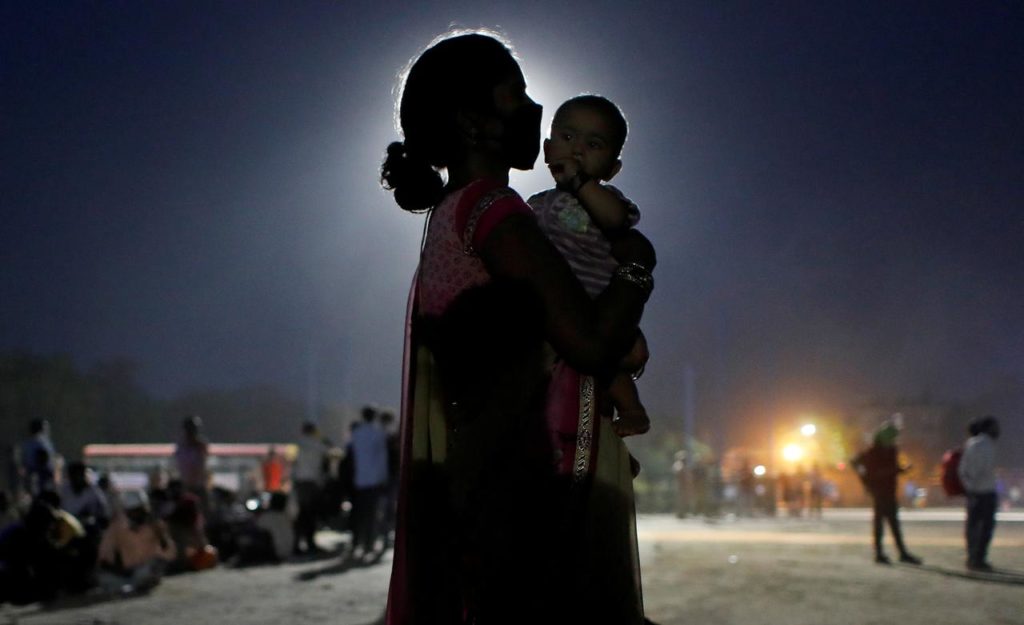Contraceptives Survey: 35% Men Believe It Is ‘Women’s Business’
May 10, 2022 | Pratirodh Bureau
The UN report highlights that preterm birth rates have not changed in the past decade in any region of the world and that “four Cs” -- conflict, climate change, COVID-19 and the cost-of-living crisis -- heighten threats for the most vulnerable women and babies in all countries (Representational Image)
About 35.1 per cent of men believe that contraception is “women’s business”, while 19.6 per cent men think that women who use contraceptives may become promiscuous, according to the latest National Family Health Survey (NFHS) report.
The NFHS-5 survey work has been conducted in around 6.37 lakh sample households from 707 districts of the country (in 28 states and eight Union Territories), covering 7,24,115 women and 1,01,839 men to provide disaggregated estimates up to district level.
The national report also provides data by socio-economic and other background characteristics; useful for policy formulation and effective programme implementation.
Among the states and Union Territories, Chandigarh has the highest percentage of men, at 69 per cent, who believe that contraception is women’s business and a man should not have to worry about it, while 44.1 per cent of the surveyed men from Kerala agreed that women who us contraception may become promiscuous, the report said.
Also, 55.2 per cent men say that if a male condom is used correctly, it protects against pregnancy most of the time, it said.
Unmet need for family planning methods is highest among the lowest wealth quintile (11.4 per cent) and lowest among the highest wealth quintile (8.6 per cent), the report said.
Usage of modern contraceptives also increases with income, from 50.7 per cent of women in the lowest wealth quintile to 58.7 per cent of women in the highest quintile, it said.
The data showed that women who are employed are more likely to use modern contraception — 66.3 per cent of them use a modern contraceptive method, compared with 53.4 per cent of women who are not employed.
Poonam Muttreja, Executive Director of Population Foundation of India, said this data adds to the mountain of evidence that proves that development is the best contraceptive.
“While there is much to celebrate in the NFHS-5 data, our focus should now be to reach the unreached. We must do more for the marginalised sections of the society, who may be underprivileged on the basis of class, identity or geography,” she said.
The data showed that knowledge of contraceptive methods is almost universal in India — more than 99 per cent of currently married women and men aged between 15 and 49 know at least one modern method of contraception.
However, the use of modern contraceptives for family planning stood at only 56.4 per cent, Muttreja added.
“It’s a matter of concern that female sterilisation remains the most popular method of contraception, showing that the onus of family planning continues to be on women,” she said.
“We need to increase the number of birth-spacing methods in the public health system, given that we have a large young population in the reproductive age group, which contributes to 70 per cent of our population momentum,” she said.
“While the countrywide numbers are encouraging, we must remember that there are wide inter-regional variations. Five states still have not achieved replacement-level of fertility of 2.1 — the rate at which a population exactly replaces itself from one generation to the next. These states are Bihar (2.98), Meghalaya (2.91), Uttar Pradesh (2.35), Jharkhand (2.26) and Manipur (2.17),” Muttreja added.
“Considering the huge population size and profound demographic diversity in the country, context-specific policy and progammes will be needed for states, passing through different stages of the demographic transition,” Muttreja said.
“The country needs to prioritise investment in providing quality sexual and reproductive health information and services, education, skill building and gender equality initiatives for the young population,” she said.
“Our experience shows that targeted social and behaviour change communication campaigns can address social norms, harmful practices, and promote male engagement in family planning,” she added.
